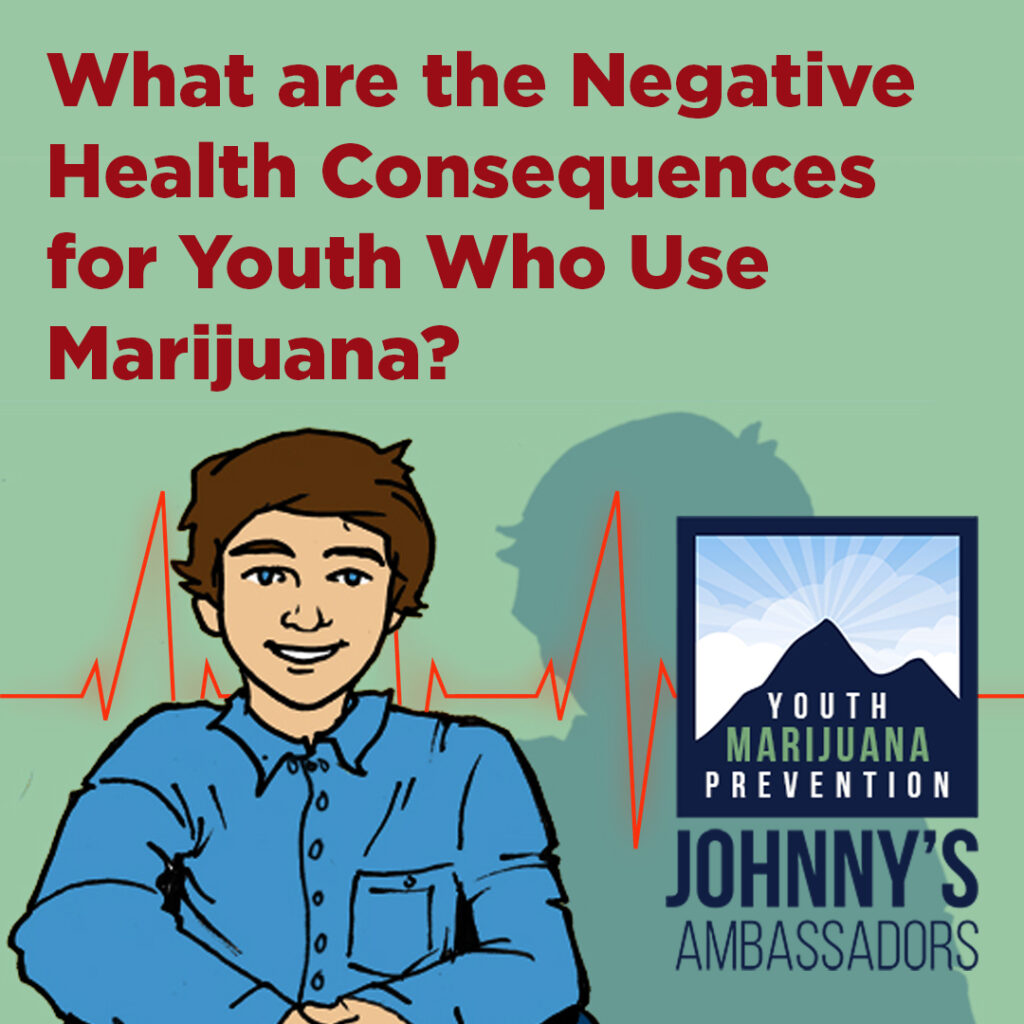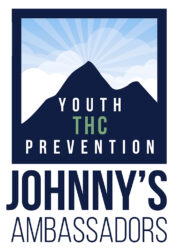
Marijuana’s bad all the way around when it comes to the health of young people. There are too many ways to count, so I’ll get us started.
A joint study from the University of Michigan and Brown University[i]found higher potency marijuana to be more addictive than low potencies. It is associated with a higher risk of cannabis use disorder (CUD) or marijuana addiction in young users. Researchers found that regular pot users who first tried marijuana when the national average THC levels held at 4.9% had almost twice the increased risk of developing symptoms of cannabis use disorder within a year. But those who started regularly using pot when national average THC levels were 12.3% had a 4.8 times higher risk of cannabis use disorder. And yet the state of Colorado continues to allow these high-potency THC products to be sold with no regulation or limitation on potency.
In a nutshell, marijuana harms adolescents in these ways:
- Marijuana dependence[ii]
- Decreased IQ[iii]
- Increased risk of addiction with higher potency[iv]
- Increased odds of using other drugs[v]
- Death from throwing up[vi]
- More likely to drop out of school[vii]
- Possible psychosis and schizophrenia[viii]
- Decreased fertility rates[ix]
- Lowered motivation to do things[x]
- Possible paranoia and thoughts that others intend to harm you[xi]
- Health damages[xii]
- Poor driving skills[xiii]
Please continue the conversation by posting other ways in the comments in the blog post below!
[i] Thompson, Dennis. “Study: Today’s Stronger Pot Is More Addictive.” WebMD, 17 Dec. 2018, www.webmd.com/mental-health/addiction/news/20181217/study-todays-stronger-pot-is-more-addictive.
[ii] Volkow, Nora, et al. “Adverse Health Effects of Marijuana Use.” New England Journal of Medicine, vol. 370, no. 23, 11 Apr. 2016, pp. 2219–2227., DOI: 10.1056/NEJMra1402309.
[iii] Meier, Madeline H., et al. “Persistent Cannabis Users Show Neuropsychological Decline from Childhood to Midlife.” PNAS, National Academy of Sciences, 2 Oct. 2012, www.pnas.org/content/109/40/E2657.
[iv] Barrington-Trimis, Jessica L., et al. “Risk of Persistence and Progression of Use of 5 Cannabis Products After Experimentation Among Adolescents.” JAMA Network Open, American Medical Association, 3 Jan. 2020, www.ncbi.nlm.nih.gov/pmc/articles/PMC6991277/.
[v] Fiellin, Lynn E., et al. “Prior Use of Alcohol, Cigarettes, and Marijuana and Subsequent Abuse of Prescription Opioids in Young Adults.” Journal of Adolescent Health, vol. 52, no. 2, Feb. 2013, pp. 158–163., DOI: 10.1016/j.jadohealth.2012.06.010.
[vi] Nourbakhsh, Mahra, et al. “Cannabinoid Hyperemesis Syndrome: Reports of Fatal Cases.” Journal of Forensic Sciences vol. 64,1 (2019): 270-274. DOI: 10.1111/1556-4029.13819.
[vii] Lynskey, M., and W. Hall. “The effects of adolescent cannabis use on educational attainment: a review.” Addiction (Abingdon, England), vol. 95,11 (2000): 1621-30. DOI: 10.1046/j.1360-0443.2000.951116213.x.
[viii] Marconi, Arianna, et al. “Meta-analysis of the Association Between the Level of Cannabis Use and Risk of Psychosis.” Schizophrenia Bulletin, vol. 42,5 (2016): 1262-9. DOI: 10.1093/schbul/sbw003.
[ix] Gundersen, Tina Djernis, et al. “Association Between Use of Marijuana and Male Reproductive Hormones and Semen Quality: A Study Among 1,215 Healthy Young Men.” American Journal of Epidemiology, vol. 182,6 (2015): 473-81. DOI: 10.1093/aje/kwv135.
[x] University College London. “Cannabis reduces short-term motivation to work for money: Smoking the equivalent of a single ‘spliff’ of cannabis makes people less willing to work for money while ‘high’.” ScienceDaily. ScienceDaily, 1 September 2016, www.sciencedaily.com/releases/2016/09/160901211303.htm.
[xi] Freeman, Daniel, et al. “How Cannabis Causes Paranoia: Using the Intravenous Administration of ∆ 9 -Tetrahydrocannabinol (THC) to Identify Key Cognitive Mechanisms Leading to Paranoia.” OUP Academic, Oxford University Press, 16 July 2014, academic.oup.com/schizophreniabulletin/article/41/2/391/2526091.
[xii] NIDA. “What are marijuana’s effects on lung health?” National Institute on Drug Abuse, 8 Apr. 2020, https://www.drugabuse.gov/publications/research-reports/marijuana/what-are-marijuanas-effects-lung-health. Accessed 13 Mar. 2021.
[xiii] Compton, Richard. “Marijuana-Impaired Driving A Report to Congress.” National Highway Traffic Safety Administration, July 2017, www.nhtsa.gov/sites/nhtsa.dot.gov/files/documents/812440-marijuana-impaired-driving-report-to-congress.pdf.


my grandsons have been using weed since 5th grade im ashamed to say that these 3 boys who were so brite and witty as small kids are now dumb &dumber as teens they wont hold jobs or help inside or outside the house it brakes my heart but its to late now